
Annie was recently presented with an English translation of the Qur’an in Dublin, Ohio, when she came to a mosque to protest against Islam,(Foto:Onislam)
by Danielle LoDuca*
It’s become simply a fact of life, the presence of what appears to be the opposition to Islam and Muslims.In some sectors of society a mounting vehemence is apparent on television, from the news to shows like Homeland, and on the ground in many countries around the world.
We hear people calling on their fellow non-Muslims to protest against Islam, and we see them standing outside our houses of worship, at times bearing weapons.
You may have seen the recent videos from the UK, showing Muslims being verbally abused on public buses, or the reports from the US, where a Muslim woman had her head slammed into the table she was sitting at with her daughter, by a young man yelling “kill them all!”
Also Read: Egypt, Qatar Deliver Trump’s Gaza Ceasefire Proposal to Hamas
Ibrahim Hooper, a spokesman for the Council on American-Islamic Relations, said the attack fits a nationwide pattern, saying, “We’ve seen a tremendous spike in the level of anti-Muslim sentiment in our society and increasingly violent hate rhetoric,” in recent years.
All of this might remind us of how the Quraysh mobilized against the Prophet Muhammad and his followers 1400 years ago. But in reality, there is a massive, vast, glaring and fundamental difference between then and now.
The people claiming to oppose Islam and the Muslims today are not doing so for the same reasons the Quraysh did then.
If we listen to their complaints we find statements such as: “Islam is a political cult” “Go back to your country” “No Shariah”.
Also Read: Israeli Airstrikes Kill 54 Palestinians Across Gaza
Feminists exclaim, “I will not submit!” amongst allegations that Islam oppresses women. It has become “common knowledge” that Islam promotes violence and barbarism; that it is backward – the stuff of cavemen.
I once spoke to a man in NYC where we had set up tables offering info about Islam to the public, who was confused seeing Muslim women using cellphones, because he imagined Islam to be anti-technology, anti-progress and unscientific.
These are nothing like the accusations against Islam in the time of the Prophet Muhammad. These are not the reasons Islam was opposed.
That is because, in the time of the Prophet Muhammad, the message of Islam was crystal clear.
Also Read: School Bus Explosion in Pakistan Kills Five, Military Accuses India
It was well known that he was teaching the rejection of idolatry, and promoting the worship of the Lord of the Heavens and the Earth, Allah, without any partners. He told them to submit their wills to God alone.
When they opposed him and opposed Islam, it was because they opposed Tawhid, they could not bear to see everything they had built upon the worship of idols, altered.
They could not bear for their traditions to be changed or removed. Their pride prevented them from departing from the ways of their forefathers, and potentially losing the fame and renown they had acquired as caretakers of the Ka’bah, then a shrine to more than 300 idols.
Hubris, arrogance and devotion to shirk kept them staunch opponents of the concept that there is nothing worthy of worship except Allah, the One God, and that Muhammad was God’s messenger.
Also Read: Half a Million People in Gaza on the Risk of Starvation: IPC
The disparity in understanding between then and now is a huge red flag. It should be like an alarm call, shrill and urgent, waking all of us up out of our deep slumber. It is an obvious sign that we are failing at something we have been commanded to do by our Lord: to convey the message of Islam to mankind.
In Muhammad’s lifetime, no one called Muhammad or his followers, terrorists. No one called Islam a religion of violence. No one claimed that Islam subjugated women – in fact they were angry and fearful of Islam because it elevated women, asserting that they are full human beings with equality before their Creator.
The leaders of Quraysh had trouble deciding on what to say to keep people away from Muhammad and his preaching, because most accusations were clearly false. They finally decided to tell everyone entering Makkah that Muhammad was a magician and that by means of eloquent words he was capable of dividing the man against his father, his brother, his spouse and his own tribe. At least for that they would have evidence in the families that had been torn apart by some of them accepting Islam and as a result, being forsaken by their families.
Even Muhammad’s enemies vouched for his wholesome character and trustworthiness. One of his staunchest of opponents during the first decade of preaching his message was named Abu Sufyan, a wealthy leader within the tribe of Quraysh. The Byzantine king Heraclius questioned Abu Sufyan regarding Muhammad. The exchange is recorded in Sahih Al-Bukhari as follows:
Also Read: Israeli Captive Says “Only a Deal Will Bring Us Home”
Heraclius said, ‘Have you ever accused him (Muhammad) of telling lies before his claim (to be a Prophet)?’
I (Abu Sufyan) replied, ‘No. ‘
Heraclius said, ‘Does he break his promises?’
I replied, ‘No. We are at truce with him, but we do not know what he will do in it.’ I could not find opportunity to say anything against him except that.
Also Read: Al-Quds Brigades Seize Israeli Surveillance Drone Over Khan Younis
Heraclius said, ‘What does he order you to do?’
I said, ‘He tells us to worship Allah and Allah alone and not to worship anything along with Him, and to renounce all that our ancestors had said. He orders us to pray, to speak the truth, to be chaste and to keep good relations with our kith and kin.’
This makes it clear that the enemies of the Prophet Muhammad, (peace be upon him) such as Abu Sufyan, were well aware of the reality of Islam. They knew exactly what it meant and what it called on them to do, and they opposed it because of their rejection of its fundamental tenets, unlike today where people are rejecting “Islam” based on misinformation and the apparent actions of governments as well as political militias and movements.
Today we are in a completely inverse situation. We are in an inherently defensive position because we have failed at sharing the message of Islam with those surrounding us. We are now forced to share the message of Islam with people who are sure they already know it.
Also Read: Hamas Expresses Readiness for Comprehensive Deal with Israel for Hostage Release
We have to try to convince, sometimes very aggressive people charged up with hatred, that they do not actually hate Islam, but a misrepresentation of it. It is indeed difficult to share the reality of Islam with our neighbors who, based on what they’ve been hearing, expect us to be disingenuous and deceptive.
Imagine if all the millions of Muslims in the US had actively been sharing the message of the worship of God alone. When attacks occur and the real deceivers appear with their lies about Islam, our neighbors would be wiser to it and able to distinguish. But, too many people have come here to find financial prosperity and safety, and are not willing to risk it by expounding about their faith to potentially uninterested folk. Instead they prefer to blend in and keep a low profile.
Instead, people who are not Muslim are often defending our faith. People who believe in equal rights for all and who reject bigotry and sectarian violence. We are being defended online by non-Muslims such as Bruce Fenton, who are objective and have actively sought out to find out the true nature of Islam before opposing it.
Interfaith and human rights organizations often stand up or speak up in our defense. Even some pastors have offered their congregations more information about Islam than we have. As a result of our lethargy in conveying this message, naturally, we are in a weak position and the message is being conveyed by other means, while we have been left behind in the dust.
Also Read: Israel Reaffirms Total Blockade on Humanitarian Aid to Gaza Amid Global Outcry
After 9/11, which is said to be the greatest catastrophe ever faced by the US, many more Americans have discovered and accepted Islam, including myself. I got my translation of the Quran from Muslim students who were sharing them as a reaction to the negative press resulting from 9/11.
Just imagine if all those people had not to learn about Islam under those circumstances. Imagine if it hadn’t been curiosity that cropped up due to heinous wanton murder, but instead the good examples of Muslims and a clear message of monotheism received in peace.
It’s time to catch up and see if we can mitigate some of the negativity that continues to grow.
It’s time to move past damage control and onto proactively sharing the beautiful, peaceful and conclusive message of our Maker, with beautiful speech and by example – our own actions being in accordance of the Deen of Islam. (Imt/R03)
Also Read: Israeli Captive in Gaza Sends Emotional Plea to Netanyahu for His Release
Taken from OnIslam
Mi’raj Islamic News Agency (MINA)
Also Read: Extremist Settlers Storm Al-Aqsa Mosque Under Heavy Israeli Police Protection





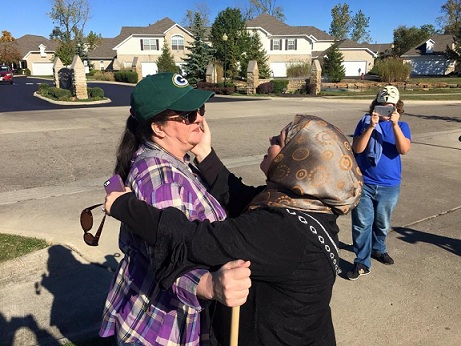







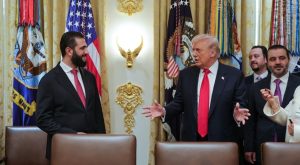
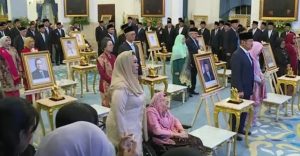



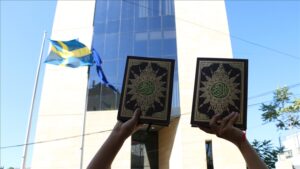









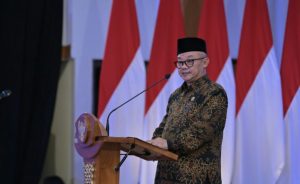







 Mina Indonesia
Mina Indonesia Mina Arabic
Mina Arabic